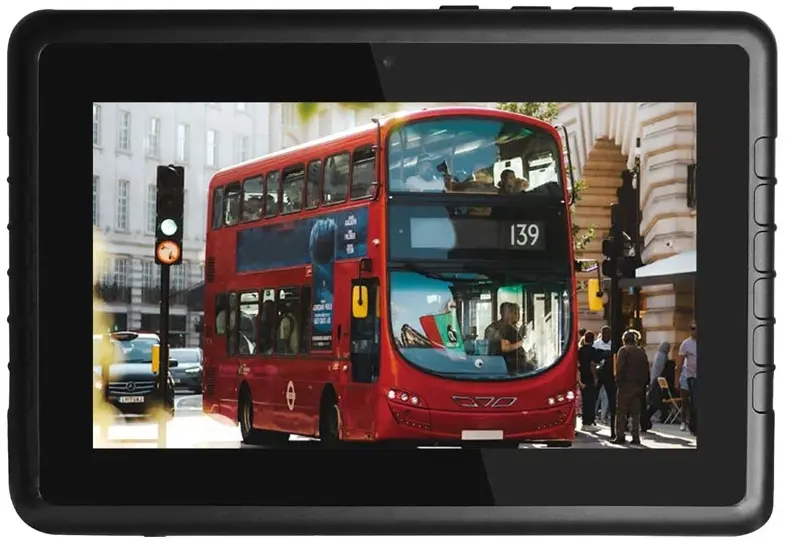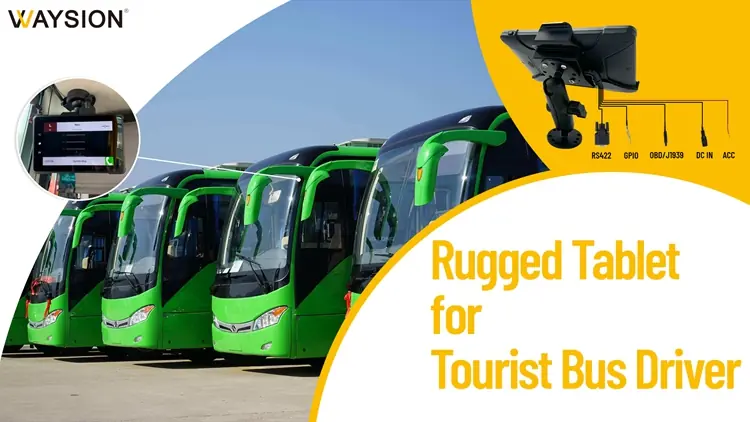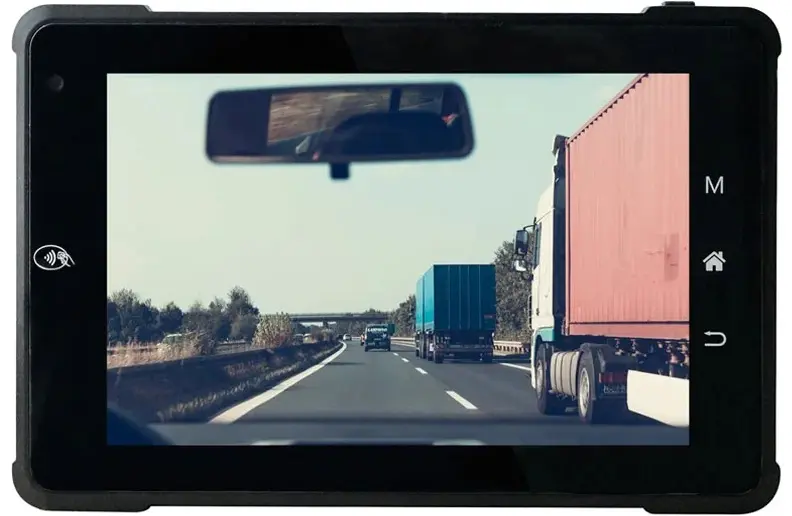Managing a bus fleet has always been a complex task, requiring constant monitoring, communication, and real-time decision-making. However, advancements in technology, particularly with rugged tablets, are making fleet management smoother, more efficient, and more cost-effective. In this article, we explore why rugged tablets are the future of bus fleet management.
1. Introduction to Bus Fleet Management
Fleet management involves overseeing and coordinating a company’s transportation operations, ensuring that all vehicles are maintained, routes are optimized, and drivers adhere to safety standards. With the increasing size of bus fleets and growing demand for public transportation, the need for reliable and efficient management systems has grown. Technology plays a pivotal role, particularly in terms of communication, data collection, and real-time monitoring, making rugged tablets essential for modern fleet management.
2. Evolution of Fleet Management Technologies
Fleet management has evolved from manual processes involving pen and paper to digital solutions that offer real-time monitoring and predictive analytics. Early systems relied on basic GPS and radio communication, but now, with rugged tablets, fleet managers have access to comprehensive software that integrates with IoT devices, allowing for enhanced vehicle tracking, maintenance alerts, and route optimization.
3. What Are Rugged Tablets?
Rugged tablets are specially designed to withstand harsh environments that traditional tablets cannot endure. They are built with durable materials, have superior battery life, and are resistant to shocks, dust, and water. This durability is crucial for bus fleets, where devices are exposed to vibrations, extreme temperatures, and constant handling. Unlike standard tablets, rugged tablets can be customized to meet the unique needs of bus fleet management.
4. Key Challenges in Bus Fleet Management
Managing a fleet of buses involves several challenges, including maintaining real-time communication with drivers, dealing with harsh operating conditions, and ensuring that data is easily accessible. Rugged tablets help address these issues by providing a reliable, robust platform for real-time communication, navigation, and data management, even in extreme conditions.
5. Why Rugged Tablets Are Ideal for Fleet Management
One of the primary reasons rugged tablets are ideal for fleet management is their durability. They can operate seamlessly in harsh environments, providing bus drivers and fleet managers with a tool that won’t fail under pressure. Additionally, rugged tablets support real-time data access, enabling drivers to receive route updates, navigation assistance, and maintenance alerts instantly.
6. Benefits of Using Rugged Tablets in Bus Fleets
The use of rugged tablets significantly increases operational efficiency. Fleet managers can track the location of buses in real-time, communicate effectively with drivers, and ensure that maintenance schedules are followed. Furthermore, the ability to collect and analyze data allows for better decision-making, ultimately improving fleet performance and reducing costs. Enhanced passenger safety is another key benefit, as rugged tablets enable drivers to respond quickly to emergencies or route changes.
7. Customization Options for Rugged Tablets
Rugged tablets offer modular accessories, such as barcode scanners, cameras, and vehicle mounts, that make them highly adaptable to the specific needs of bus fleets. These tablets can also integrate seamlessly with fleet management software, IoT devices, and GPS systems, providing a one-stop solution for managing operations.
8. Use Cases of Rugged Tablets in Bus Fleets
Rugged tablets serve a variety of functions within bus fleets, including displaying passenger information, optimizing routes, diagnosing vehicle issues, and enabling quick responses to emergencies. They also help drivers adhere to schedules and provide real-time updates to fleet managers, ensuring smooth operations.
9. Real-time Data Collection and Analytics
Data is crucial in fleet management, and rugged tablets provide an efficient means of collecting and analyzing real-time information. Fleet managers can monitor vehicle performance, predict maintenance needs, and optimize routes, all based on real-time data collected through rugged tablets.
10. Cost and ROI Considerations
While rugged tablets may represent a higher upfront cost compared to other devices, their long-term benefits make them a worthwhile investment. Reduced downtime, lower maintenance costs, and increased efficiency translate into a solid return on investment.
11. Ensuring Data Security and Compliance
Data security is critical in fleet management, and rugged tablets are equipped with robust security features to protect sensitive information. These tablets comply with industry standards, ensuring that fleets operate within legal and safety regulations.
12. Future Trends in Fleet Management Technology
As technology continues to evolve, rugged tablets will integrate more advanced features, including IoT capabilities, AI-driven analytics, and even autonomous vehicle systems. These trends will further solidify the role of rugged tablets in fleet management.

V7S: Android 11 Mobile Data Terminal w/4G LTE, WiFi/BT,GPS,Camera
13. Rugged Tablets vs. Other Fleet Management Solutions
Compared to laptops and handheld devices, rugged tablets offer the best balance of portability, durability, and functionality, making them the ideal choice for bus fleets.

Q7S: 7-inch High Quality Rugged Tablets
14. Choosing the Right Rugged Tablet for Your Fleet
When selecting a rugged tablet, fleet managers should consider factors such as display size, battery life, and connectivity options. Devices that offer compatibility with fleet management software and GPS systems are ideal.
15. Conclusion: The Future of Bus Fleet Management with Rugged Tablets
In conclusion, rugged tablets are the future of bus fleet management. Their durability, real-time data capabilities, and adaptability make them indispensable tools in modern fleet operations. By embracing this technology, fleet managers can improve efficiency, reduce costs, and ensure passenger safety.
FAQs:
- Why are rugged tablets important for fleet management?
Rugged tablets are vital because they provide real-time data, durable hardware, and efficient communication platforms for fleet managers and drivers.
Why are rugged tablets important for fleet management?
Rugged tablets are vital because they provide real-time data, durable hardware, and efficient communication platforms for fleet managers and drivers. - How do rugged tablets improve fleet efficiency?
They streamline communication, offer real-time tracking, and reduce downtime by enabling predictive maintenance and timely decision-making. - Are rugged tablets cost-effective for bus fleets?
Yes, despite a higher upfront cost, rugged tablets reduce long-term expenses by minimizing repairs, downtime, and maintenance issues. - What makes rugged tablets different from standard tablets?
Rugged tablets are built to withstand harsh conditions, including shocks, dust, and extreme temperatures, making them ideal for demanding environments like fleet management. - Can rugged tablets integrate with existing fleet management software?
Yes, rugged tablets are compatible with most fleet management systems, offering seamless integration and enhanced functionality. - What future trends will impact rugged tablets in fleet management?
IoT integration, AI-driven analytics, and autonomous systems will further enhance the capabilities of rugged tablets in fleet operations.

评论
发表评论